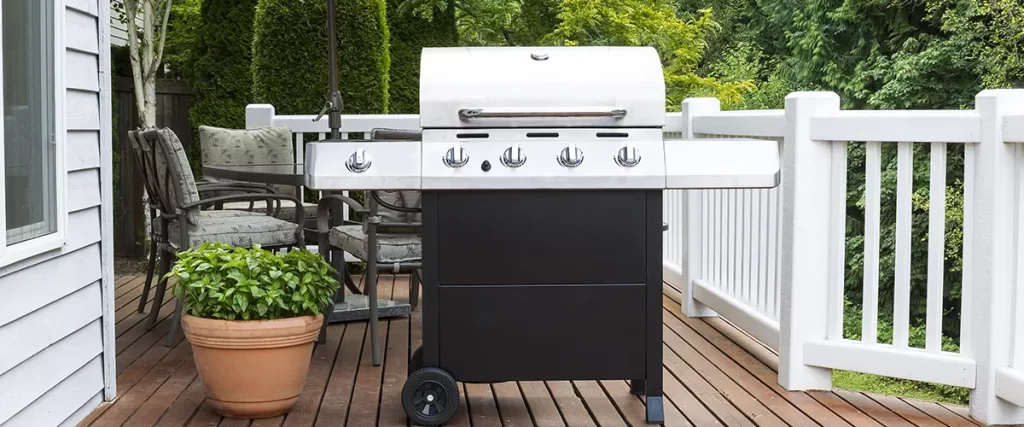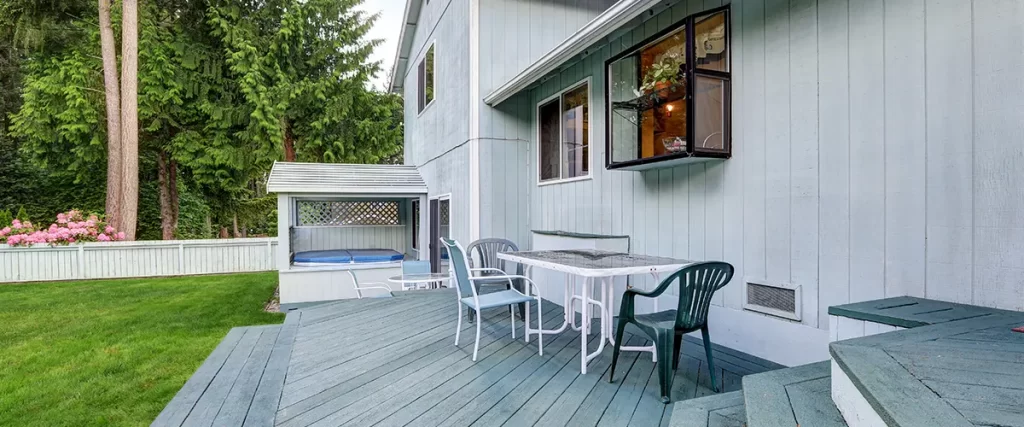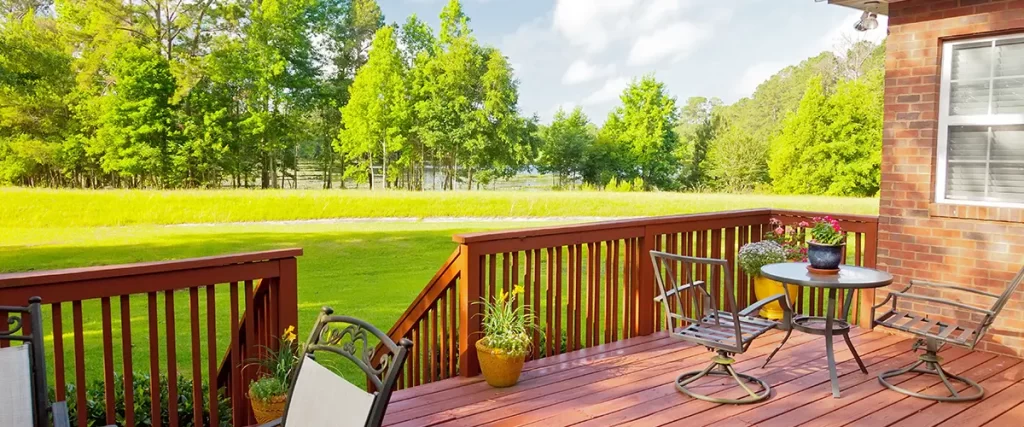Decks are one of the most popular additions to one’s home. From real wood decking to stone, decks can be made in a range of materials. If you’re in the market for a new deck, you might be wondering about the PVC vs composite decking debate and which is the better option. Both materials have their pros and cons, but which one is right for you? In this guide, we will compare and contrast PVC decking and composite so that you can make an informed decision about your next construction project!

PVC Decking
Advantages
When it comes to PVC decking, there are a few key advantages that set it apart from a traditional composite deck.
First, PVC deck boards are fundamentally easier to install than most composite decking. With composite, you need to worry about ensuring the boards are properly aligned and fastened — a process that can be difficult and time-consuming. With PVC, all you need to do is snap the boards into place!
Second, PVC decking is significantly cheaper than composite. Even high-end composite decking can be several times more expensive than budget-friendly PVC.
Finally, PVC decking is more durable and resilient than composite. It’s scratch resistant and it also has stain resistance. Plus, it can withstand extreme weather conditions.
Disadvantages
While PVC decking does have some advantages over composite decking, it also has a few disadvantages.
For one, PVC decking is not as strong as composite decking. This means that it might not be the best choice if you’re looking for a deck that will last for many years.
Second, PVC decking can be more difficult to maintain than composite decking. It needs to be washed and dried regularly, or it will start to fade and become brittle.
Third, PVC decks are not as environmentally friendly as composite decks. They often contain harmful chemicals that can leach into the soil and water supply.

Composite Decking
Composite decking is made from a combination of plastic and wood fibers. This material is popular because it is durable and low-maintenance. Composite decking does not warp or rot like natural wood, and it does not require painting or staining. However, when considering PVC vs composite decking, it’s important to note that composite decking can be more expensive. Additionally, composite decking is not as heat-resistant as PVC and may melt in direct sunlight.
Advantages
There are many advantages to composite decking. Perhaps the most obvious is that composite decking is made from recycled materials. This makes it an environmentally friendly choice, as it doesn’t require the destruction of any trees.
Composite decking is also very durable. It can withstand even the harshest weather conditions, making it a great choice for decks that will be exposed to the elements. And unlike wood, composite decking doesn’t rot or decay, meaning you’ll never have to worry about replacing it.
Disadvantages

Which Material Is Right For You?
If you’re new to the world of deck building, you might assume that all decks are practically the same — it’s just wood, right?
This couldn’t be farther from the truth! No two decks are created equal, and many decks aren’t even 100% wood. Both composite and PVC decking is made from synthetic materials. So if that’s what they have in common, then how are they different? And which one is best for your future deck?
Composite decking and PVC decking are both great options for homeowners. Composite decking is made of a blend of wood and plastic, which gives it a natural look and feel. It’s also durable and long-lasting, making it a great choice for homeowners who want a low-maintenance deck.
PVC decking is made from 100% plastic, so it’s perfect for homeowners who want a deck that’s resistant to moisture and insects. It’s also non-toxic, making it a safe option for families with small children.
So, which material is right for you? If you want a low-maintenance deck that looks natural and won’t warp or rot, then composite decking is the best option. If you want a durable, moisture-resistant deck that’s safe for children, then PVC decking is the best choice. Whichever material you choose, make sure to consult with a deck builder to get the best results.


Conclusion
Decking is a popular home improvement project and there are many options available to homeowners. In this post, we’ve looked at PVC decking materials and composite decking materials and their respective advantages and disadvantages. When considering “PVC vs composite decking?”, ultimately, the decision of which material to use comes down to personal preference and budget. We hope this article has helped you make an informed decision about your next decking project. For more information about decks or for help deciding which material is right for you, reach out to us today.
